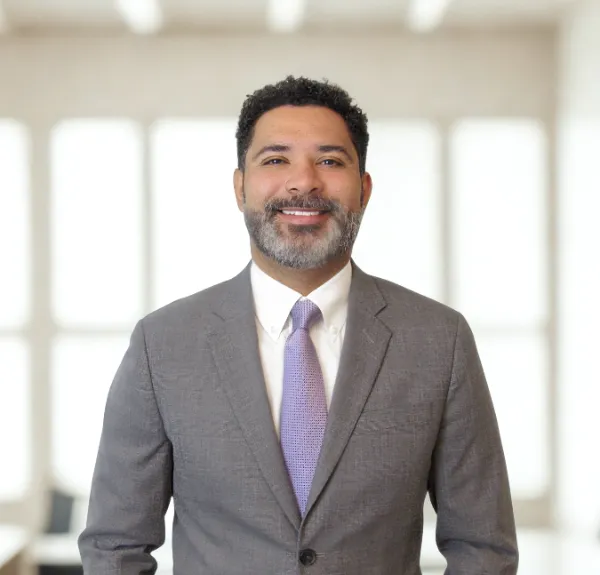
Contested Wills and Probate Lawyers
Representing Clients in Legal Disputes Arising from Contested Trusts and Wills
When a loved one passes away, emotions often run high. This can be particularly true when there are significant assets that are to be distributed among various family members.
In some cases, distant family members with little contact in other scenarios may become embroiled in a dispute over shares of an inheritance or over specific family heirlooms in which they have a sentimental interest. Close familial relations such as siblings or close cousins may disagree over the administration of an estate or whether they are receiving their rightful share of a decedent’s assets.
The law governing contested wills, trusts, and probate litigation can be complicated and vary from state to state. As a result, people involved in these disputes need to retain an attorney with experience practicing in this area of law.
Get a Consultation
Why Do Disputes Happen?
There’s no particular reason for a final will or probate dispute, so it’s a mistake to automatically apply the reasons for one family’s situation to another.
Secondly, the level of relationship different people had with the deceased doesn’t indicate how they will behave during the execution of the person’s will or the probate process. This is why disputes sometimes become an unexpected or unwelcome surprise during the settling of an estate.
The most common reason tends to be a sense of entitlement. A party who feels they were very close to the deceased or provided a lot of support for them may feel “owed” some portion of the inheritance involved or may be expecting some gratitude as a beneficiary.
In some cases, the deceased may have even led the person to that assumption to retain their support without actually committing their assets in an express, written form.
That sense of being “owed” often drives a dispute, especially when the party left out of a will may have been the only one close to the deceased in their last days. Common parties involved in this scenario can include final caretakers, neighbors who helped extensively, service providers who visited daily, and others who were close to the deceased.
The conflict between what a person distributes and who is chosen as a beneficiary for a will can also create friction with relatives who feel “obligated” to an inheritance through a simple relationship. Often, such family relatives feel offended at sharing an inheritance they think belongs to the family.
This is also common in the case of siblings. In most states, only the married spouse has direct control and access to a share of a deceased’s estate. In fact, under states with community property, the surviving spouse already owns half of the marital estate and becomes the primary owner of what remains unless expressly identified in a will, estate plan, or trust.
Deep family conflicts also have a way of becoming exposed during estate plan disputes. No one is perfect, and feelings that have been contained for decades can frequently spill out into the open during an estate settlement, especially when a given relative feels slighted by others or expected to just go along with how a will was crafted.
Fraud and perceived undue influence tend to be a big category as well. This situation frequently comes up when a will or estate plan has been revised or crafted at the very last moment, usually in a person’s last few years after a previous estate plan known to everyone was in place decades earlier.
Disputes about recent partners, new spouses, and children or relatives no one has heard about usually trigger disputes, especially from family members who have long stood with the deceased and may have been left out as beneficiaries or reduced significantly.
Some of the most famous estate disputes argued by a contested will lawyer over millions of dollars involved this exact type of situation. No one wants to be in a conflict during loss and grieving, but unfortunately, estate plan disputes can and do happen.
Being prepared for them with the right contested wills and probate lawyers can make all the difference between getting to an estate probate completion versus a long, drawn-out negative experience that permanently damages relationships.
With over 100 years of combined experience, the attorneys of the Dickson Frohlich Phillips Burgess law firm can help you ensure that your legal rights are protected and that your case is resolved as favorably as possible.
Get a Consultation
Dickson Frohlich Phillips Burgess Handles all Matters Related to Contested Wills, Trusts, and Probate Litigation
When a person passes away, their estate can be distributed in various ways. If an individual does not have a valid will, the state laws governing intestate succession control how and to whom the property is distributed.
The lack of a will has repeatedly been an area where the probate court asserts most of its influence based on the interests of the family and parties filing disputes. Without a clear estate plan, what the deceased may have wanted for an estate leaves everything in a question mark status.
Only the probate court can decide to bind the estate to a distribution legally. In these instances, the court will weigh the interests of the family relatives left behind, their relationship to the deceased, and any arguments made by anyone asserting an interest.
Because there is so much gray area involved, large estates without an estate plan can end up being distributed to parties that were not even related to the deceased, a recurring surprise for many who assume the probate court will automatically choose living relatives.
As a result, having an estate plan, a basic will, or even a handwritten will known as a holographic instrument is better than nothing at all.
On the other hand, if a person did have a will, the will would go through a process known as “Probate” in which a court would determine the validity of the will and distribute the assets accordingly.
The probate process also allows interested parties to raise any objections to the terms of the will or challenge the validity of the will itself.
Finally, the existence of a trust allows individuals to avoid the probate process by creating a legal relationship between trustees who hold the assets of the trust for the benefit of one or several beneficiaries.
In this last scenario, legal disputes can arise between any party with interest in the trust assets, including beneficiaries, trustees, and creditors.
We are equipped to represent individuals with disputes related to any aspect of estate administration, including the following:
- Breach of fiduciary duty
- Beneficiary disputes
- Claims of undue influence
- Lack of capacity
- Trust validity
- Claims made by adopted heirs
- Estate management disputes
- Contested heirs
- Fraud
- Executor mismanagement.
Alleged executor mismanagement is probably one of the most complicated aspects because it tends to challenge the choice of the deceased as to whom they’ve left behind to manage the trust’s execution and distribution.
When that executor involves a third party, questions can come up concerning the interests and fiduciary responsibility of the given executor versus the interests of the surviving family as well as anyone who already had an interest in an asset affected by the given trust.
In these instances, a contested trusts attorney is oftentimes needed to help navigate what can be a complicated affair intended to be private and kept out of probate court, the fundamental benefit of using a trust in the first place.
Contact Dickson Frohlich Phillips Burgess Today to Schedule a Consultation
The outcome of a will, trust contest, or probate litigation can have a significant impact on your financial situation and your relationship with members of your immediate or extended family.
Consequently, anyone involved in this type of dispute in the Seattle or Tacoma area should retain an attorney with a track record of success in contested trust, will, or probate litigation.
Call our office today at Seattle – 206-621-1110 (Seattle), 253-572-1000 (Tacoma), 360-742-3500 (Olympia), 971-416-0881 (Portland) to schedule a consultation with one of our attorneys.



























